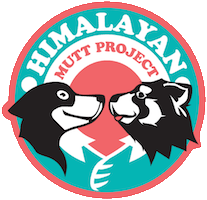VOLUNTEER IN THE HIMALAYA
The Himalayan Mutt Project has volunteer opportunities available each year for veterinarians and veterinary technicians who are also active individuals, love the great outdoors and want to help protect one of our Earth’s most unique and biologically diverse landscapes. Our work is focussed in the Annapurna Conservation Area (ACA), Nepal's first and largest Conservation Area, home to four of the world's highest mountains and 1,226 species of flowering plants, 102 mammals, 474 birds, 39 reptiles and 22 amphibians. You will help us deliver veterinary services to some of the 100,000 residents of different cultural and linguistic groups that reside in ACA. Veterinary volunteers can help our team with neutering and vaccination procedures, and provide basic veterinary checks.
Veterinary volunteers support a critically important aspect of our on-the-ground program. Our efforts ensure that dogs do not continue to unnecessarily threaten the health and safety of people and wildlife in the Himalaya.
Because field work requires travelling in a 4x4 vehicle, spaces for volunteers are extremely limited and we are not able to accommodate large groups of volunteers.
Dates for 2020
Manang District: Mar 29 - Apr 15
Volunteers must be ready to depart Kathmandu for Manang on Mar 29, and the team will arrive in Kathmandu by Apr 15. Volunteers must over their own international travel costs to Kathmandu. Accommodation, meal and travel costs during the field work will be covered by HMP. Bursaries are only available to veterinary volunteers from Nepal.
Be ready for:
-
Hands-on manual work in a mountainous and high-elevation environment, with a climate that ranges from hot and humid, to cold and humid, and cold and dry
-
Travelling in a 4x4 on uneven, wet, and dusty terrain
-
Basic living conditions: no running hot water, rudimentary toilet and shower facilities
-
3 meals per day (rice and lentils, possibly supplemented by eggs, chicken, or tofu)
-
Field work: long hikes up and down hillsides, heavy lifting
-
Unpredictability! Volunteers must adapt to sudden and daily change of plans.
Work will be at one of these village clusters:
-
Manang District: Taal, Sange, Sapra, Mepra, Tagring, Girmu, Chamje, Jagat, Sirichaur, Khotro, Nache, Dharapani, Thoche, Thilche, Odar, Gyalancho, Bagarchap, Danaque, Timag, Thanchowk, Koto, Chame, Talekhu, Bhrathang, Pisang, Manang, Khangsar, Tanki, Bhraga, and Ngarwal.
-
Mustang District: Lete, Kobang, Jomsom, Kagbeni, Muktinath, and Tatopani
A Volunteer’s Typical Day:
7:00am – 8:00am – Breakfast
8:00am – Work begins/Set-up, dog collection
12:00pm – Lunch break
1:00pm – Work
5:00pm – Work ends/Clean-up, option to do a short walk
7:00pm – Dinner
7:30pm – Debrief and prepare for next day
9:00pm – Bed (at volunteer’s discretion)
Before you sign up, consider this:
-
Volunteers do not need experience in the field, just a willingness to help, a sincere interest in animal welfare and environmental protection, and a passion for the work HMP does.
-
Volunteers are expected to work approximately 8 hours per day. There are no "days off" during the field trip. This volunteer experience should not be viewed as a "holiday".
-
You must be 21 years of age or above.
-
You must be in good physical condition, preferably with experience of hiking at high-elevation (up to 3,900m), and be prepared for hands-on manual work in a potentially cold, and oxygen-deprived environment that may occasionally have snow and other inconveniences.
-
Volunteers should also be cognizant that Nepal’s endemic diseases include giardia, typhus, hepatitis, etc.
How to Apply
Contact us to express your interest for 2020.
-
Email us your CV and cover letter with at least one referee,
-
If your written application is successful, you will be contacted by email for an interview via Skype.
Application process
All applications will be acknowledged. Once CVs, cover letter and referral letters are received, you will be contacted within two weeks. Note that all of our volunteer coordinators are themselves volunteers, so please be patient if there is an occasional communications delay.
After the interview, you will be contacted regardless of whether your application was successful.
Bursaries include:
Accommodation, food (breakfast, lunch and dinner), TIMS Card (Trekkers’ Information Management System) and ACAP Entry Permit (Annapurna Conservation Area Project), all travel within the field site, and between Kathmandu and the field site.
Bursaries exclude:
Snacks, postage, laundry, or activities outside the volunteer experience. International and internal travel to and from the airport. You must purchase your flight tickets to and from Kathmandu's Tribhuvan International Airport. Fees do not include the cost of your stay in Kathmandu before or after the trip dates.
Volunteers are responsible for their own vaccinations and should bring water purification tablets and medications as well as medicines for common conditions such as diarrhea. HMP will NOT accept applicants who do not show proof of valid vaccinations against rabies, and potentially others, depending on alert levels at the time.








